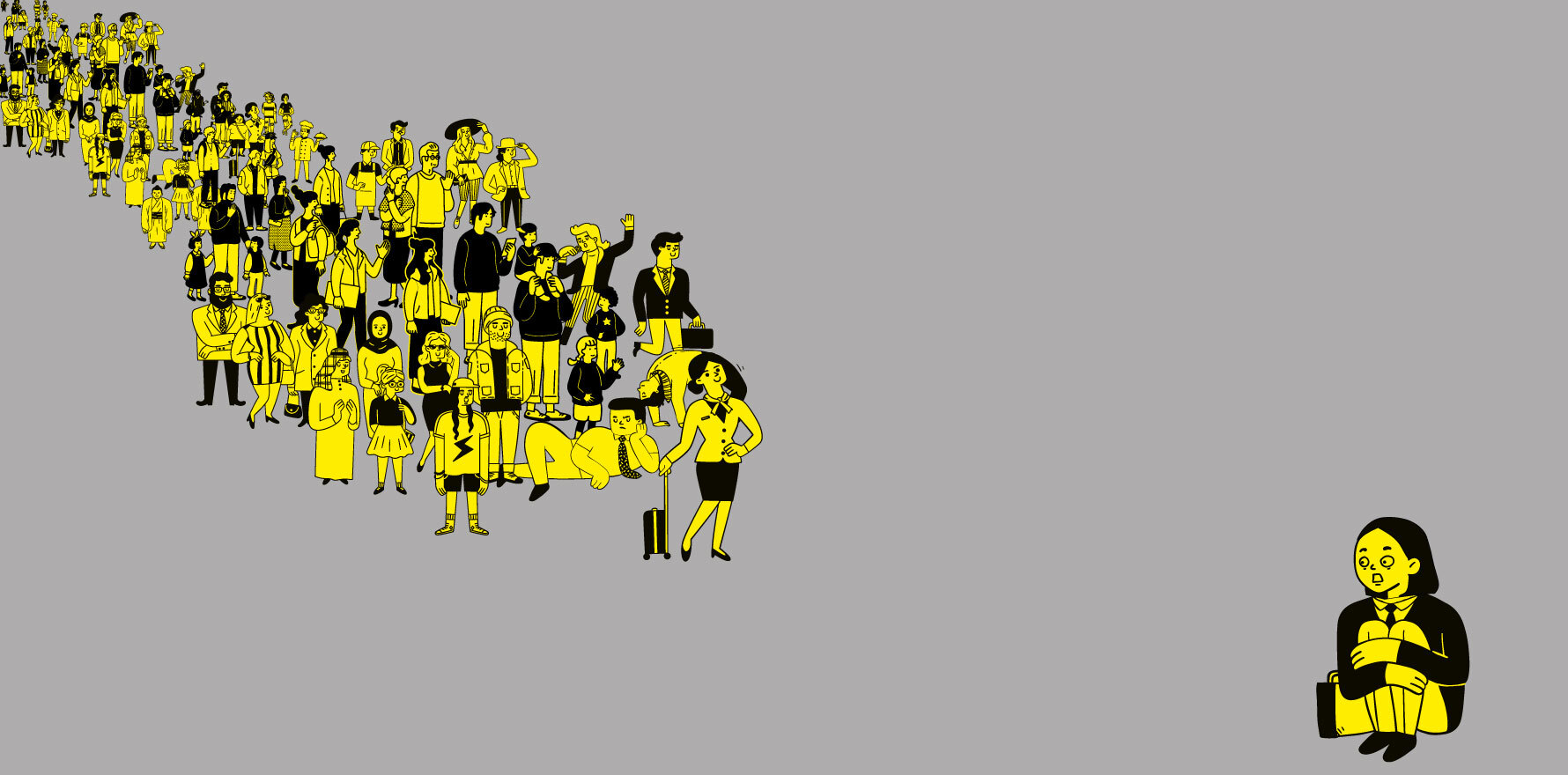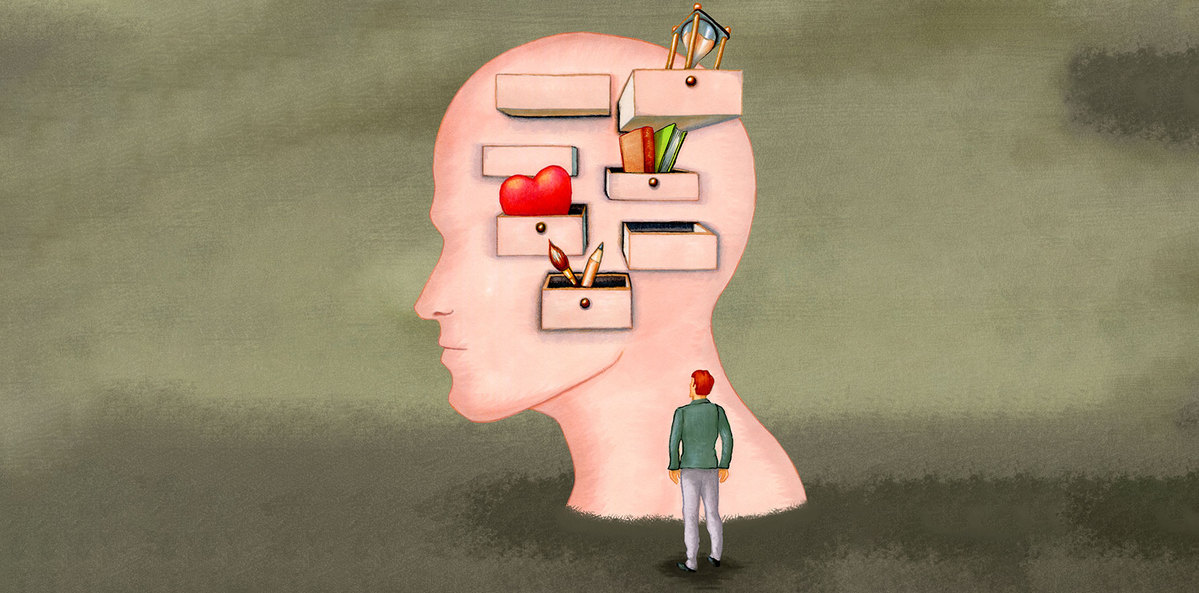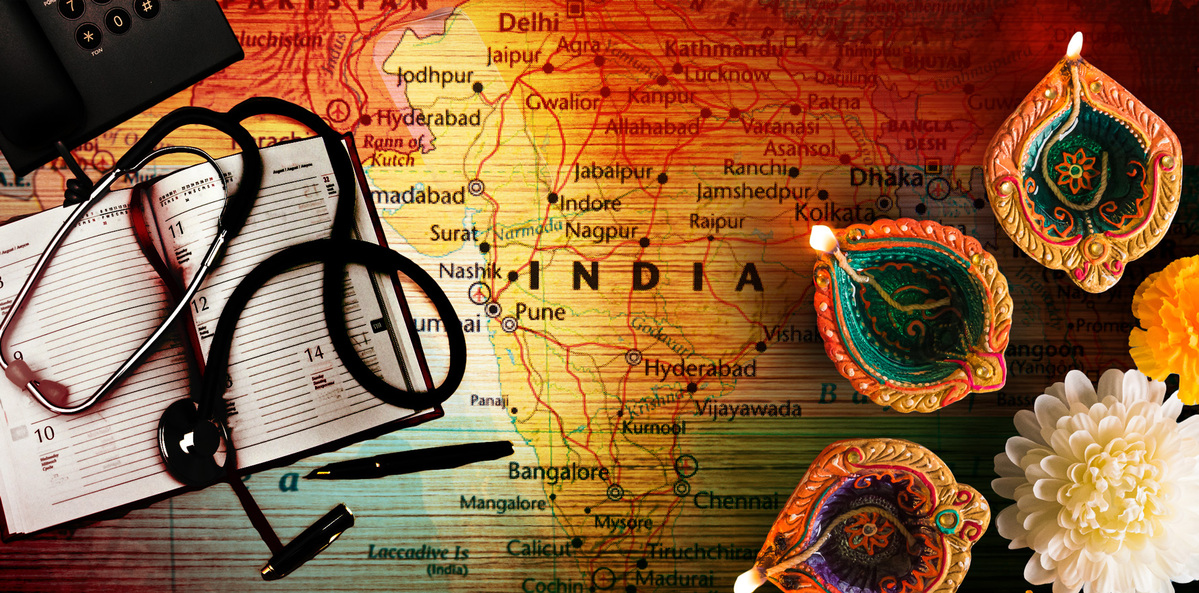Migrants to Australia need, and are worth, all the patience we can give.
Good morning, how is everyone today? What’s going on?
Yes, doctor, this is my mother, she’s visiting from India.
Very nice to meet you, hello. Please sit, please sit. Hi kids. How were school holidays?
Yes, doctor, the cough is very bad and the wheezing.
Hang on, who’s coughing? The appointment is for the youngest?
Yes, doctor, actually, we’re all coughing. But the wheezing is very severe. Maybe some medicine…?
(Grandmother) You are from where?
From Bangalore. But who needs to be seen with this severe wheeze?
Actually, doctor, all of us have had a cough for one week. But this cough is worse.
The youngest?
Doctor, the oldest.
Okay, one second, let me fix the appointment booking.
Yes, doctor, the wheezing is quite severe. He [the oldest, 9] is having a lot of wheezing.
Is it your asthma again? Have you been taking your inhalers?
Doctor, we haven’t given any inhalers, so you can see how severe it is.
No Ventolin today?
No, doctor, we wanted you to hear the wheezing.
What about Ventolin the last few days? And the preventer?
No, doctor, we wanted you to check first.
Okay, of course, but please when he has a wheeze, give him Ventolin. I will believe you even if I can’t hear a wheeze.
Doctor, we are sorry … the other doctor said the same thing.
The other doctor?
Yes, doctor, the wheezing was so severe we consulted another doctor yesterday as you were not available.
Great! What did the other doctor say?
He said to use Ventolin.
Right.
But doctor – we wanted to consult with you only first.
Sure.
(Grandmother) Are you married?
Okay, well, I agree completely with the other doctor: let’s restart the preventer and give you some regular Ventolin.
Doctor, is the preventer necessary?
Yes.
But doctor, it’s a steroid…?
Yes, low-dose steroid, very safe.
Doctor, sorry – the preventer is steroid?
Correct, yes, low-dose steroid, it goes into the lungs only, very safe for kids.
Doctor, we heard that steroids can cause short growth?
Heard?
Yes, doctor, I mean, many websites say-
Oral steroids, long term, certainly, can impact growth, but low-dose inhaled steroids are very safe.
Doctor, is it necessary?
Yes.
Doctor-
It really is. I’ve since him five times in six months with asthma flares. He really needs the preventer.
But other side effects? Diabetes – we read –
You’re very correct, but that’s usually long-term oral steroids we’re talking about. His diabetes risk is higher because of our ethnicity more than his asthma preventer, honestly.
Related
(Mother) Doctor, we should test him for sugar? My mother takes insulin.
(Grandmother) I have sugar problem, also a little BP. But I control rice. Only two chappati for lunch.
(Mother) Yes, only healthy food at home. But she makes snacks here, murruku and all, and she gives ice cream and laddoo every day for the children.
(Grandmother) Not every day!
(Mother) Every day!
(Grandmother) But small laddoo only.
OK, I think we can hold off oral steroids for now and just do inhalers –
Oral? Doctor – you just said-
No, no, only if he doesn’t improve – we sometimes need a few days of oral steroids –
Doctor, is it necessary?
No, not now, I don’t think. But we can review in two days –
Doctor, should we do oral steroids now since the wheezing is so severe?
Wait, what?
Actually, doctor, we have some at home. The other doctor prescribed it.
The other doctor?
Yes, doctor, we consulted another doctor this morning, and she prescribed oral steroids.
Hang on –
We just wanted to consult you only first, doctor.
Listen, honestly, this is getting messy and you’re getting pretty good plans from all the doctors you’re seeing. How about you pick one and start treatment, and I’ll call in a few days to check in?
Okay, doctor.
Well it was a joy meeting you, hope you have a great visit. Happy Deepavali.
(Grandmother) You know Deepavali?
Of course, yes.
(Grandmother) I have made some laddoo. I’ll bring for you.
(Mother to grandmother) What are you doing, you can’t bring food for doctors here. She won’t eat it.
(Grandmother to mother) She doesn’t eat sweets? Oh – sugar problem for the doctor too?
No, no, there’s no problem. It’s very thoughtful. But you don’t have to do that.
(Grandmother, to me) You do dieting?
OK, sounds like we have a plan. I will give you guys a call in two days to check if he’s improving.
(Mother) Doctor, you work anywhere else?
No, I’m just here. But I’m here full time.
(Grandmother) If he worsens after the surgery closes, where to call?
Yes, here are the numbers to after-hours doctors, or the hospital, if you need.
(Grandmother) Oh, you don’t do evening or night calls for your patients?
No, most GPs don’t do after-hours calls. I don’t, myself.
(Mother) Doctor, no problem, I understand.
(Mother to grandmother) It’s different here, the doctors don’t give their phone numbers.
(Grandmother to mother) How do we contact her at night?
(Grandmother, to me) How do we contact you at night?
(Mother, standing to leave) So any medicine to give?
Like antibiotics? No, he’s all good, just a viral cough and cold that’s flared the asthma. I feel optimistic that restarting the inhalers will help.
(Grandmother) What about food to give?
Whatever he feels like eating is fine.
(Grandmother) What about milk?
Sure.
(Grandmother) But milk will worsen cough?
What?
(Grandmother) Milk makes sputum, no?
Oh, no, he can eat and drink whatever he can manage and wants. Lots of water.
(Grandmother) What about yoghurt?
Sure.
(Grandmother) Yoghurt will worsen cough though?
No, it’ll be fine, they’re different systems in the body, the yoghurt won’t go into the lungs.
(Mother) In India they say not to give milk and yoghurt for cough.
Ok, that is fine.
(Grandmother) What about ghee?
(Mother) Doctor, last question only – what about antibiotics?
No, he’ll improve naturally, but if there’s any worsening we can reconsider.
(Grandmother) What about his height?
What?
(Mother) Doctor, sorry, she is worried about his height. He’s very small, very short.
Compared to-
(Mother) Doctor, in his class he’s very short.
In Australia, though.
(Mother) Yes, doctor, in his class here.
He’s perfectly growing if you consider your height and your husband’s height. He’s growing very well in the context of his family heights and ethnicity.
(Grandmother) He needs some iron?
Listen, I am truly sorry but I have to let you go today – if you’re really worried about his weight, absolutely I want to talk about it – but please can you come back with another appointment?
(Mother) Sorry, doctor, sorry.
(Grandmother) Turmeric in milk is OK?
Culture is complex and beautiful, and having these interactions in medicine helps me understand the layered complexity of my own culture, which is as heavily flawed as it is joyous. It also helps me to be more compassionate and understanding, because when we migrated to this country, I am sure these were identical consultations that my parents had with their GP, also Indian, who with unending patience expertly navigated appointments full of worry and deference and preoccupation with old wives’ tales from India.
We don’t have any family here, even now. I imagine my parents, both highly educated, when they migrated very far from home, alone and young with a wheezy baby, and no one to trust or comfort them when the wheezing was severe. Most of their reassurance and care probably came solely from their Indian GP, who no doubt was very aware of this and clearly nurtured a therapeutic relationship so strong that it’s still going 33 years later.
This keeps me patient when I start to get impatient, reflective when I get frustrated, and moves me back to a patient-centred approach with as much shared-decision making as is clinically safe when I start to drift away to a paternalistic model.
I never mind the well-meaning questions from Indian grandmothers and – for the record – I will always eat the food that patients so thoughtfully prepare.
For another year – Happy Deepavali.
Dr Pallavi Prathivadi is a Melbourne GP, adjunct senior lecturer at Monash University, 2024 RACGP mentor, and newly appointed member of the Eastern Melbourne PHN Clinical Council. She holds a PhD in safe opioid prescribing and was a Fulbright Scholar at the Stanford University School of Medicine, and previous RACGP National Registrar of the Year.





